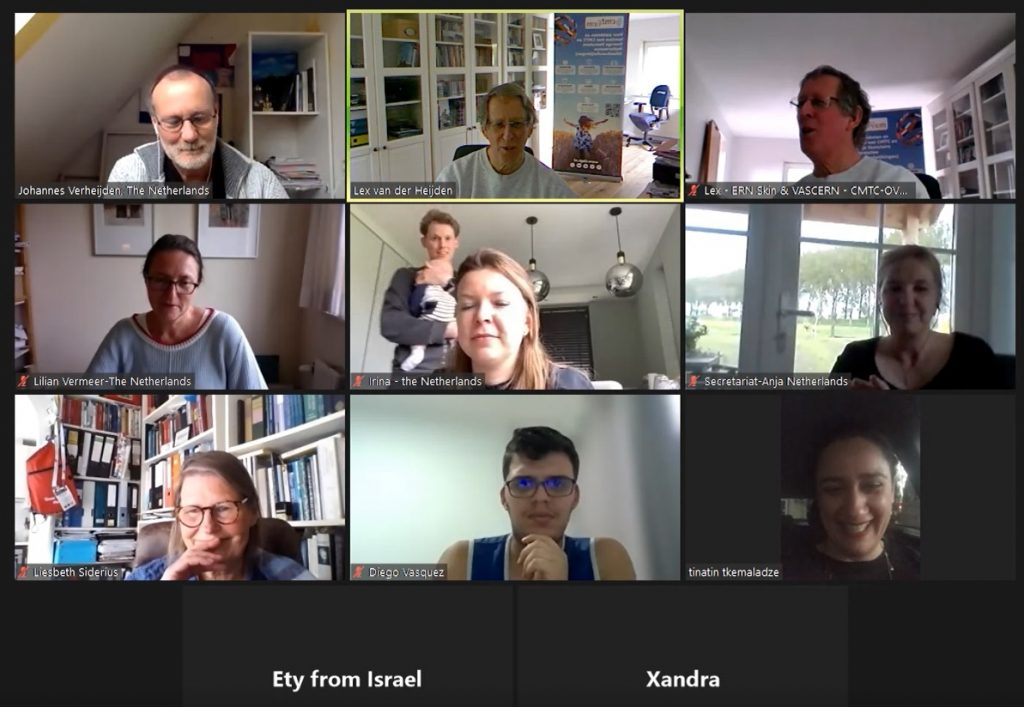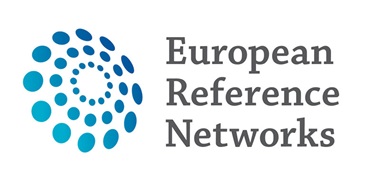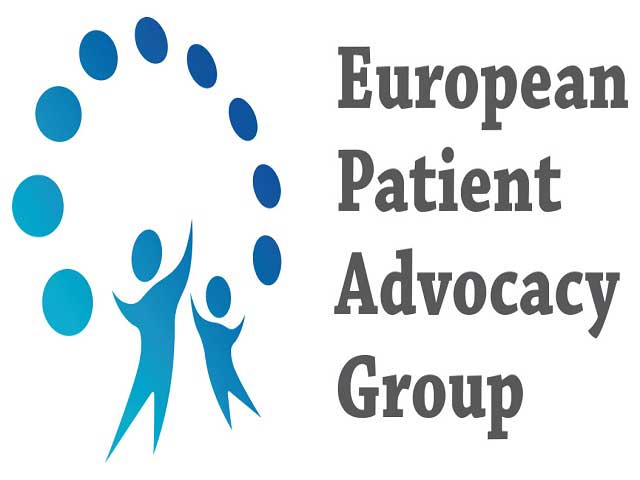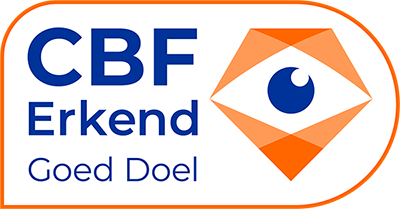We organized this public webinar on May 22, 2021 with the subject ‘after the diagnosis’ by Johannes Verheijden. Johannes is also the author of: After the diagnosis
*Johannes Verheijden is Coordinator of Network Integrated Child Care at the Knowledge Centre for Child Palliative Care.
After the diagnosis
How do you deal with the consequences of the diagnosis of a rare disease like CMTC or DCMO? This is the central question posed by Johannes Verheijden* in the webinar he led. It turns out that this can differ from person to person but also from country and/or culture.
One parent is worried and does an endless search on the internet. The other looks at what the child can do and is less worried. Not knowing what your child has when it has red spots all over its body after birth can cause different reactions. The personal stories of patients on the CMTC website are very nice to read. It can give a better picture of the future and sometimes removes unnecessary worries.
In some countries there is very little knowledge about conditions such as CMTC, says D. from Costa Rica. He received the necessary comments about his son when nurses saw the markings. “I got the feeling that they were thinking of abuse. When a doctor with the right knowledge explained that it was CMTC, they did eventually apologize.”
Lex (Netherlands) also had this experience when his now 26-year-old daughter was born with CMTC.
Liesbeth Siderius (pediatrician, advisor on rare diseases) notes that there should be more about this in the training of (pediatric) doctors.
Do not hide stains
Participants in the webinar mentioned that they never hid their child’s markings. Now in the corona era, there are few contacts, so few people see it and there are few comments. For adolescents, however, it can become more of an issue.
The experience of some is that in some countries children with markings are hidden (Sri Lanka, India). They are considered an outcast.
How do you help your child accept himself/herself with his/her condition?
A. (Netherlands): By telling them that there is no such thing as ‘normal’. Everyone has something. You are fine the way you are. I. (Netherlands): “You have to accept yourself the way you are. The personal story (on the CMTC-website) of the Danish girl, Sophie, helped me a great deal in dispelling any worries about the future for our son. She writes: ‘Even though you have CMTC, you won’t miss anything in life.’ So you are not limited.”
Do you have to explain to everyone what your child has?
E.(Netherlands): “You have to explain it in detail to those closest to you; a short explanation is enough for those who are less close. A.(Netherlands): “If people around you keep staring, you can explain it. But you can’t explain it in great detail to everyone.”
D. (Costa Rica): “It is often easier to explain it to children. If they know, they accept it and go back to playing.”
How is/was the help from doctors?
A.: “We were helped well. First in Rotterdam and then in Leusden at the CMTC conference. They take you seriously here.”
X. (Italy): “I saw many specialists, but most of them said ‘oh that’s nothing. Then I came with the diagnosis and it was waved away. I also found them passive, they didn’t do much. They could have shown more interest by listening better. And not look down on us so hierarchically (‘God complex’). E. (Israel): “Yes doctors should listen better. Come up with practical advice.”
D. (Costa Rica): “If you don’t know as a doctor, admit it! And don’t ship your patients off with the search for some ineffective lotion.”
Liesbeth also thinks that some doctors are too hesitant to admit when they don’t know. They should see patients with the rare disease as experts on their illness.
Is a WhatsApp group helpful for parents?
A.: “For my adolescent son such a group would be nothing. I am already in a Dutch WhatsApp group with 10 mothers.” It could be something for parents from other countries, but then the language should be English. Perhaps a new initiative will be taken.
Lex: “In Brazil, there is a very active WhatsApp group”.
Central message
Johannes: “What do patients/parents of patients consider most important when they have a conversation with their doctor? The most frequent answer was: that the doctor listens to me. That I am heard.”
Liesbeth: The doctor is not always to blame. It can sometimes be difficult when the patient’s parent/patient is not very clear about his/her concerns and reacts differently at different times.
Participants: Keep searching for answers. Don’t give up hope and doctors: listen to your patients!
Upcoming webinars
We regularly organize webinars.
Video (members only)
Do you want to watch the video? Become a member and get access to all info on our website.
This content is restricted!





